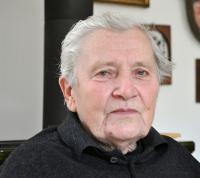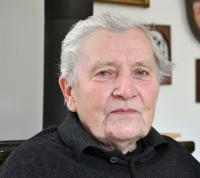I replied that I was not able to tell them, because I knew them all only by their nicknames

Stáhnout obrázek
Věra Doubková, or sister Tečka, under her Scout nickname, was born on May 21, 1929. In 1936 she joined the Girl Scouts‘ 8th troop. Influenced by books of Jaroslav Foglar, during the war she formed a club of the Mladý hlasatel (Young Herald) magazine called Modrá Kotva (Blue Anchor). She returned to the Scouts after the war. The Scout organization then became banned in Czechoslovakia, and after another 20 years she became the leader of the Girl Scouts‘ 5th troop in Karlovy Vary. She was, however, unable to continue working with children because she was forced to go to work as a lorry driver under the campaign „77,000 for the production industry,“. As a driver, she worked 10 to 12 hours a day, including weekends. After 1989 she became active as a Scout official again and in 1991 she was decorated with the Bronze Syrinx.

